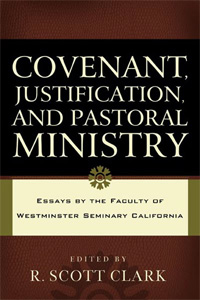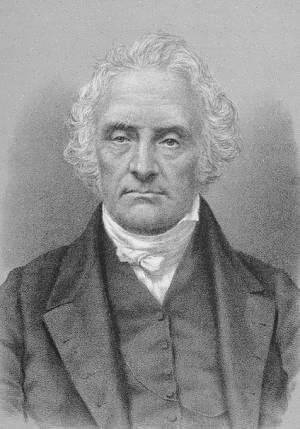In a 15 May essay in The Christian Century, Richard Mouw argues that we Protestants should perhaps re-think the question of praying to deceased Christians. He confesses that he wasn’t really well acquainted with the Roman doctrine of prayer and the intercession . . . Continue reading →
Recovering the Reformed Confession
Is Faith a Work?
The question comes (paraphrasing): Since Scripture says, “believe,” (e.g. Acts 16:31) it seems that we are commanded to believe. If the command to believe is an imperative and an imperative is “law,” and if the answer to the command “believe” is faith, . . . Continue reading →
Imagination
One of the recurring themes of the dialogue between Reformed confessionalists and the more broadly evangelical adherents to aspects of the Reformed soteriology (namely predestination) represented by some members of the Gospel Coalition is the question of how to define the adjective . . . Continue reading →
The Reformed Doctrine of the “Communicatio”
Over at the Puritanboard Sebastian asks I find often that people think the Refgormed undiscrimantely reject(ed) the communicatio idiomatum. However, the 2nd Helvetic Confession is as clear as any in accepting it. However, it does not qualify the way later theological formulations . . . Continue reading →
Reformed Churches Of Nassau (1578): No Organs In Church
Latin songs, as well as organs (first introduced into the churches by Pope Vitellianus about 665) are for the most part abolished in the churches of this land. Not that the use of the Latin language or of music is rejected of . . . Continue reading →
Presbyterians and Quakers Together
I see that Tony Jones has posted something critical of small/cell groups (I don’t know where and I can’t find it now. You’re welcome to post a link in the comments). Perhaps now that a leader in the Emergent Village has suggested . . . Continue reading →
The Grace Of Law?
An HB Classic
The question comes: I once heard someone say (or write) that the Law was also “graceful” because at least in this God’s case, He was letting His subjects know what was expected and wanted from them. I appreciate the intent of the . . . Continue reading →
Roman Catholic Scholar Converts to Evangelical Faith
Dateline Paris, 1534. © Paris News Service By Guy LaFontaine Jean Calvin, 25, of Noyon, a leading scholar of the classics and law student in the University of Paris, has reportedly converted to the evangelical cause. A classicist with a bright future . . . Continue reading →
On Elements and Circumstances
An HB Classic
The Reformed confessions distinguish between the elements of worship and the circumstances of worship. In Westminster Confession 21 we say, “…the acceptable way of worshiping the true God is instituted by himself, and so limited by his own revealed will, that he . . . Continue reading →
Could Instruments Be Idols?
Friday, in the Medieval-Reformation course I gave a lecture on Calvin’s doctrine of worship during which a student asked about instruments. I replied that Calvin (and most of the Reformed) would have viewed the introduction of instruments into the service the same . . . Continue reading →
“Bound to the Past” and to a Living Confession
An HB Classic
In reaction to Rick Phillips’ critique of a response by a Federal Visionist to his (then) presbytery, one of the proponents of the Federal Vision made the following argument: … Surely, we all know there’s a difference between how we use terms . . . Continue reading →
Free: Petrus van Mastricht on Preaching
Petrus van Mastricht (1630–1706) wrote one of the most important, most mature theological works the period of high orthodoxy (which has nothing to do with the new pot laws in Colorado and Washington State), the Theoretico-Practica Theologia. Todd Rester, who translated and . . . Continue reading →
Was There a Mainstream of Reformed Orthodoxy?
It’s being argued (on discussion lists and in private emails) that there was never any mainstream of Reformed theology in the 16th and 17th centuries. The proof? Some cat or other emails to say, “here’s an sentence from this important 17th century . . . Continue reading →
Who Was Franciscus Junius?
Todd Rester, at the newly-founded Junius Institute, (HT: Jordan Ballor) explains: Franciscus Junius (1545-1602) is a significant figure in the development of Reformed theology in the era of early Reformed orthodoxy. Junius studied under John Calvin Geneva, pastoring churches throughout Europe and . . . Continue reading →
Narcissus Lives!
Narcissus is a mythological story about a young man who became so fascinated with his own reflection it cost him his life. Narcissism is a psychological disorder that confuses subjective experience for objective reality. In Recovering the Reformed Confession I described the . . . Continue reading →
American Evangelicalism: From David Joris to David Koresh
NPR has a story today reminding us that the Branch Davidian episode was twenty years ago (HT: Ann Althouse). The story is worth hearing. Ann Althouse raises the question whether NPR is turning our attention to the Branch Davidians in order to . . . Continue reading →
The Heidelberg Catechism Rocks Her World
An HB Classic
A correspondent to the HB writes: About 7 years ago during a study of Romans in BSF, God rocked my theological world! My thinking was turned upside down as I embraced the doctrines of grace and began to see God and myself . . . Continue reading →
The Moralists Will Be Back
An HB Classic
It is an historical fact that moralism (the confusion of justification with sanctification) never dies, it just goes dormant periodically. The Reformation defeated 1000 years of moralism only to see forms of it re-emerge in the Protestant churches even before Luther died. . . . Continue reading →
A Day in the Life of the Rev Mr Joe Presbyterian
An HB Classic
The question came up on the PB whether pastors are overworked. Most people work hard but not everyone works in the same way the pastor does. Some compared the pastor’s work to physical labor. That’s a poor comparison. The labor of the . . . Continue reading →
All We Want
“Our problem is that most of us would like to remain the PCA, all we really want is an orthodox, Bible-believing, law and gospel preaching, Presbyterian church that is solidly committed to the doctrines taught in the Westminster Confession of Faith.” —Andy . . . Continue reading →

















